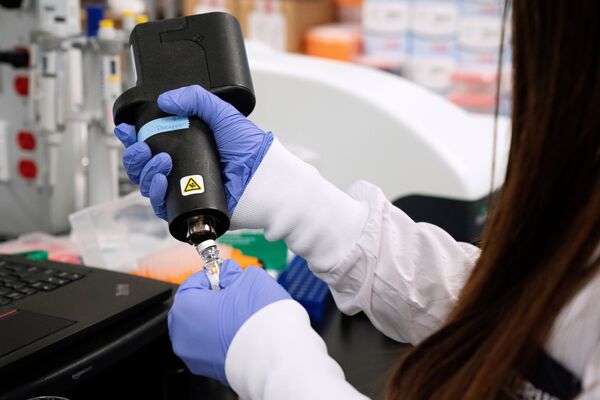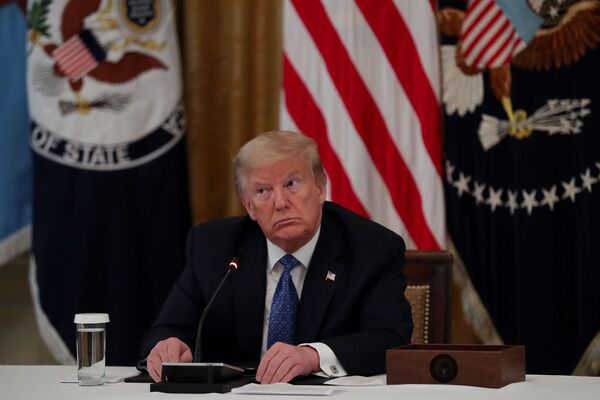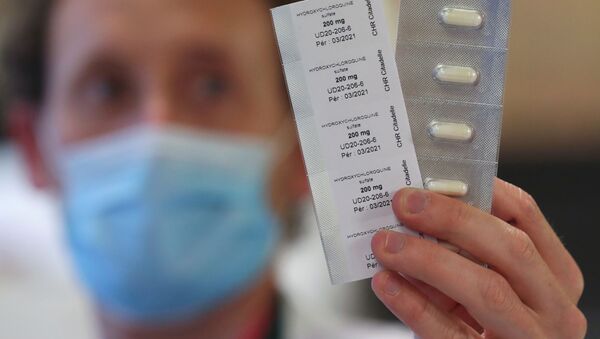British health workers are to take part in the first global study involving hydroxychloroquine - the drug US President Donald Trump revealed he was taking as a preventive measure against COVID-19, reported Sky News.
The clinical trial that is part of a study led by the Bangkok-based Mahidol Oxford Tropical Medicine Research Unit (MORU), supported by the University of Oxford and health charity Wellcome, will initially involve hospitals in Brighton and Oxford.
The trial is open to any adults employed at UK healthcare facilities and working with proven or suspected coronavirus patients, under the condition they have not been diagnosed with COVID-19 or a respiratory disease.

These sites are the first of an overall 25 that will be used to test if chloroquine or hydroxychloroquine can prevent coronavirus infections. Previous trials studied the drug as a possible treatment for COVID-19.
According to MORU co-principal investigator, Professor Sir Nicholas White, the clinical trials will involve over 40,000 people working with coronavirus patients across Europe, Africa, Asia and South America.
"We really do not know if chloroquine or hydroxychloroquine are beneficial or harmful against COVID-19," White was quoted by the outlet as saying.
Underscoring the fact that chloroquine and hydroxychloroquine are not licensed to treat or prevent the coronavirus respiratory disease, the UK government has been emphatically urging against using the medication outside clinical trials.

Lead UK investigator for the MORU trial, Professor Martin Llewelyn of Brighton and Sussex School, voiced cautious optimism regarding the outcome of the study:
"If drugs as well tolerated as chloroquine and hydroxychloroquine could reduce the chances of catching COVID-19 this would be incredibly valuable… Like all drugs, chloroquine and hydroxychloroquine have side effects. But actually, used in the sort of doses that we will use them in the COPCOV trial, they're expected to be really, very safe."
The results of the clinical trial are expected to be announced by the end of 2020.
‘Game-Changer’ Drug
While to date there are no clinically proven treatments for COVID-19, the malaria drug hydroxychloroquine has been in the limelight ever since US President Donald Trump announced on 18 May that he had been taking it as a preventive measure against COVID-19, and touted it as a "game changer".
When asked about his reasons for taking the drug, Trump emphasised he believed “it's good, adding he "heard a lot of good stories", and that "a lot of frontline workers and doctors" take it.

Some epidemiologists believe that the drug can be effective against COVID-19, if combined with zinc and azithromycin.
Trump’s announcement sparked a wave of criticism due to lack of conclusive scientific studies regarding use of the drug, with the US government's top infectious disease specialist, Dr Anthony Fauci, urging caution, and insisting there was no proof the medication could prevent coronavirus, as large-scale clinical trials are yet to be completed.
A number of observational studies have shown hydroxychloroquine does not help with COVID-19.
A study published in the Journal of the American Medical Association on 11 May showed no evidence that HCQ could be effective in treating COVID-19 patients.
Earlier, the Food and Drug Administration issued a warning that hydroxychloroquine can cause heart rhythm problems, and must not be used outside of hospital settings or clinical trials.


